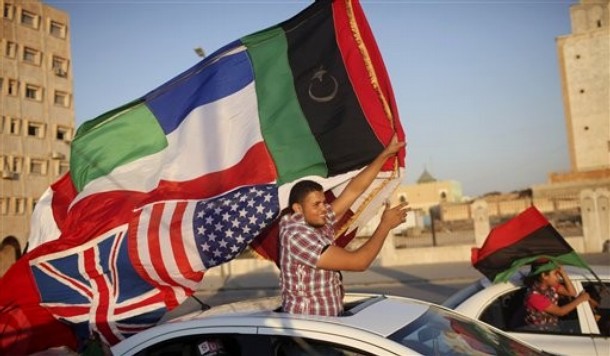
From the Editors of the Washington Post: In the days since the riots, there has been a broad backlash against the violence in both countries — culminating Friday in Benghazi, where tens of thousands of people marched on the base of an Islamist militia suspected of involvement in the Sept. 11 attack on the U.S. Consulate. . . .
The militants were forced out of the base, and the demonstrators burned part of it before turning it over to the Libyan army. On Sunday, the interim government, which had been wavering on how to react to the assault on the consulate, ordered the dismantlement of all militias not under its authority and said they must withdraw from government property within 48 hours.
Anti-Americanism is a potent force in the Arab Middle East; polls show that in several countries — though not in Libya — U.S. prestige has fallen during the Obama administration. But in a region where power is up for grabs, it is only one of many competing agendas, and much evidence suggests that its champions are in the minority. That means the appropriate U.S. response is not to write off the region, or to cancel aid programs — as some in Congress propose — but to help moderate forces defeat and marginalize the extremists.
Libya’s biggest problem is that its new democratic government is too weak to take on the scores of militias around the country that do not accept its authority, including some that may be allied with al-Qaeda. Though last week’s popular demonstrations gave it a political boost, the government could use greater security assistance from the United States and other NATO governments — including training and help with intelligence. (photo: AP)
Image: ap%208%2024%2011%20Libya%20flags.jpg
